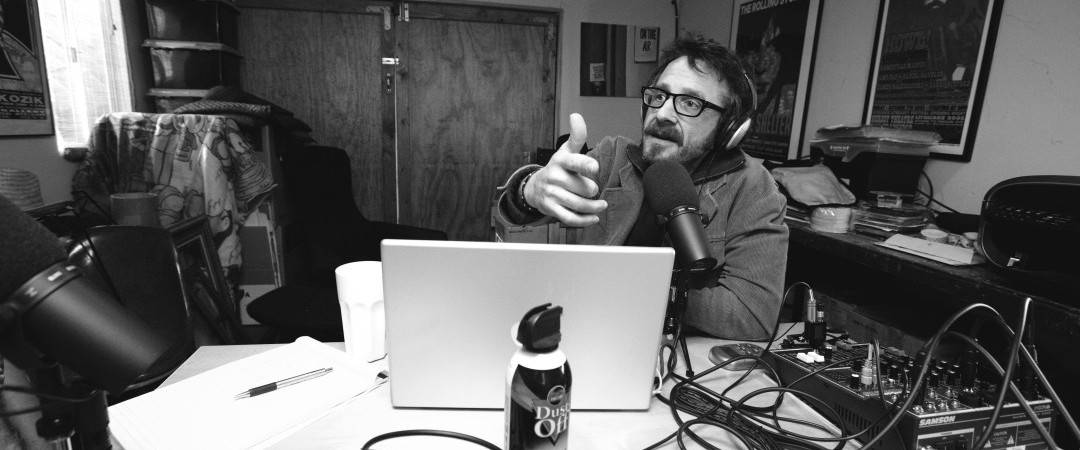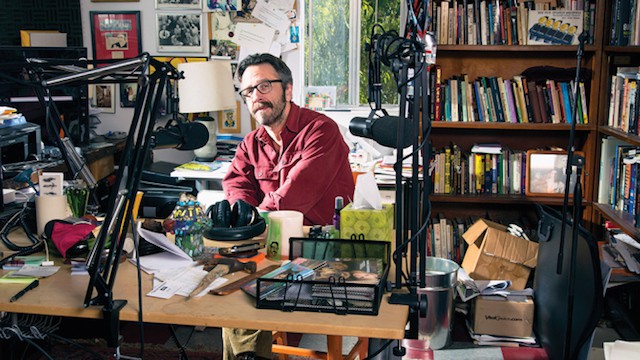
In elementary school I knew a girl who wouldn’t talk in front of the class. In any assignment that required a presentation, she would sit it out and take the F. She had the ability to talk, I knew that much. She was loud and funny, a girl on the playground calling the shots. It was in front of us, all of us sitting in our school desks where her fear came in and stopped her voice, cold.
I’m not much of a talker. Since I was a kid I’ve had a stutter, the sort that knots itself in my throat and makes me utter ridiculous sounds. An unintentional comedian of tics and clicks. I never know when this stutter is going to hit and no matter how many speech therapists or experts I’ve spent time with since junior high, the only true cure is the no one discusses.
Stay completely silent.
So I listen to the conversations of others. Slowly you begin to realize that most talk is unimportant and repetitive, but that is human nature. When the opposite happens, when I hear people speak that are truly good at it, a certain thrill hits. A spark of jealousy and joy. Listening to someone with the ability to turn the simple task of speech into a thing of beauty is a wonderful moment to have. I’ve always turned to comedians to give me this fix.
Discussing podcasts is as boring as most of the podcasts out there. I’m always surprised when podcasts about interesting topics have nothing to say or add to the conversation. They’re just there. People doing their best Jay Leno-esque interview. Trite and obvious questions, the answers something the audience already knows, so why bother? Perhaps for the communal pats on the back.
A favorite of mine is WTF with Marc Maron. I didn’t know a lot about Marc Maron going into it other than he’s a comedian but his interviews were with comedians and actors I liked so I gave it a shot. His interviews are humorous but that’s not the point. Mr. Maron knows most of his guests intimately, or is at least familiar with most of them and he keeps the conversations honest.
You get the sense that Patton Oswalt or Dan Harmon don’t go on his show to do a typical Letterman or Jay Leno interview. They want the opportunity to talk about comedy and their interests in an honest and open forum. This isn’t comedy dissected, rolled out and strung up and analyzed. Ultimately, these are conversations with people who have found success in humor talking about the true nature of being funny in an inspired manner.
It’s an odd feeling being jealous of a man’s ability to talk. Marc Maron has a gift. He’s able to be interesting, insightful, and funny concurrently. I should give examples but I won’t. Just listen. Pick any episode. I stumbled onto his podcast in iTunes because I was looking for certain comedians and he had interviewed them them all. Now I listen no matter who he talks to, because I’m here for the band leader, for Marc Maron.
That girl in elementary, unwilling to talk. It always baffled me why she was so vocal in her refusal to stand up and speak, since I wish it were that easy for me. To stand and talk and not have the words click out in dry consonants. If anyone asks, stuttering hurts. It does. The tongue aches and the throat stiffens. It’s a mysterious workout. You can’t breath but you want to. You can’t say a word, but you try. It gets better because you learn tricks. You get asked a question. You know the answer but it won’t come out, so you just shake your head and shrug, ‘ don’t know.’ The trick is to play dumb. Pretend you didn’t hear the question. Don’t speak up. Learn synonyms. Find other ways of saying what you mean.
My speech has gotten a lot better since I was a kid, but the anxiety and panic still lives. I envy Marc Maron and his fellow comedians even beyond the jokes and inventive nature of their speech. They’ve taken something so basic and human and created art out of honest communication. The same tool you use to order coffee at Starbucks they use to make a living. It’s talk, a little bit of the blah blah blah and they make it seem like fun, not work. It’s a ridiculous thing really, what inspires and motivates me sometimes. Marc Maron discussing his cats or his days in San Francisco, by its design, should make me want cats or to visit San Francisco, but what it does is make me want to find the joy in talking.
Maybe that’s the cure I’m looking for, to find an easy joy to speaking to erase the fear and anxiety that stuttering brought me. My current plan to keep quiet doesn’t have a long shelf life because it is a plan designed out of fear, never a good foundation for progress.


I often wonder how common it is for a person to view himself as a poor speaker, even when his writing shows a strong linguistic skill. Perhaps it is merely the ability to read what one is writing and edit if necessary before hitting the “submit” button that enables such a perception.
I don’t particularly have a diagnosed speech impediment, but I know that even if I have written out what I want to say in advance and practiced my delivery, I still freeze up to some extent when having to present orally. The only reason I have improved at all as a presenter or speaker is because of how often I’ve been put in a position where I’ve had to do it. I still loathe it, but occasionally, it’s unavoidable.
That’s a good point – in writing you can edit, and no one knows the mistakes or lack of clarity to your initial thought. In speech, if you stumble, stammer, or just blow it there is no take backs, which doesn’t help the anxiety none.
In college it was common, and constant, to have to present your work and take questions. That really sharpened by speaking skills, but for some reason it’s the everyday task of talking that I don’t do very well. If I have an audience I don’t seem to have a problem, but I struggle the most when talking to someone one on one.
Good post, Chris – Fear is not really a great motivator for encouraging change. I also find it easier to write than to “stand and deliver”, and I think many people do because we don’t have to be so self-conscious when someone isn’t in front of us.
Maybe that is why it is easier for you to speak to an audience than one-on-one. We can sometimes be less self-conscious with a group that we don’t really interact as quickly with, but seeing one person devoting attention to us can be intimidating sometimes.
Thanks for reading, Harry. In front an audience if the stutter hits I can pause, walk around, and it looks like it’s part of the presentation. One-on-one nothing can hide the internal freak out that goes on when the words just won’t come out and it’s just embarrassing.